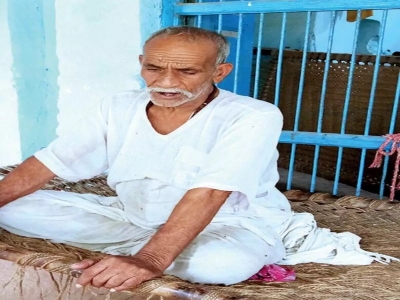Behmai massacre witness and plaintiff dies at 85 waiting for justice

Rajaram Singh (Photo: IANS)
Rajaram Singh (Photo: IANS)
Kanpur (Uttar Pradesh): Rajaram Singh, the main witness in the 1981 Behmai massacre and the plaintiff in the case, died after prolonged illness in his native village Behmai in Kanpur Dehat district. He was suffering from chronic liver disease.
Rajaram Singh was 85.
In the Behmai massacre, 20 men, including 17 Thakurs, one Muslim, one Dalit and one OBC, were killed on February 14, 1981 by bandit queen Phoolan Devi and her gang as revenge for the sexual violence perpetrated on her by men of the Thakur caste.
Rajaram’s two younger brothers, Banwari Singh and Himmat Singh, cousin Naresh Singh, nephews Dev Singh, Hukum Singh and Dashrath Singh were among those killed by the Phoolan Devi gang.
Earlier this month, in an interview to a newspaper, Rajaram had said, “I wish to see the accused of the Behmai massacre hanged for their crime. They had killed our innocent family members. But God only knows whether I would be able to get justice as I am suffering from chronic liver ailment. I will get peace only when the killers are punished in my lifetime.”
Rajaram, the key complainant and witness, had recalled that he was 46 when the massacre took place but memories of the incident still send shivers down his spine even after 39 years.
“Our village witnessed 20 cremations on a single day. I was born as a Thakur, who are considered to be brave, but on that day, I was shivering like anything and took refuge under the fodder dump. Maan Singh, Balwan, Shivpal, Mustaqeem, Phoolan Devi and their men were dragging away my brothers, some of whom were just 11, 12 and 14, forced them to kneel down and shot them one by one. They had shot 26 men, out of whom 20 succumbed,” he had said.
Behmai, once known as the village of Thakurs, was transformed into a village of mourners with 17 young widows within an hour.
“What was more painful was how Thakurs were projected as rapists of Phoolan all these years,” Rajaram had said in the interview.
He said that such was the fear of Phoolan that none could even dare to look in her eyes.
“Now tell me, in such a situation, is it possible that people like us, having wives and children, would have sexually assaulted Phoolan, that too in the presence of our grandmothers, mothers and sisters. We are not insane, we are also a part of the society,” he had stated.
“In the last 39 years, there has not been a single day when we lived happily. What is the point if an accused gets punishment 10, 20 or 30 years after the incident? Is this justice?” he had asked.
Rajaram’s son, Ramkesh Singh, who is serving as a police home guard, told reporters, “Even though my father was old and ailing, he regularly visited court and never missed hearings. It is immensely painful for us that his last wish of witnessing killers getting punishment in his lifetime remained unfulfilled.”
Rajaram’s one son, Kandrapal Singh, is serving in the Army, while two others Badam Singh and Deshraj Singh are peasants.
A local court of Kanpur had framed charges in the case in August 2012, about 31 years after the massacre.
Out of the 23 accused in this case, 16, including Phoolan Devi, are already dead.
Charges were framed against the four surviving accused, while the court issued a non-bailable warrant against three absconders, including Maan Singh, Ramkesh and Vishwanath.
A special court (dacoity) had fixed a date for pronouncing the verdict in the case in January 2020, but it was adjourned several times as the original case diary was reported missing from court records and a probe was ordered.
Phoolan Devi was shot dead on July 26, 2001 by three masked gunmen outside her residence in Delhi.
IANS
The English Post is on Telegram and WhatsApp, click to join for regular news updates




